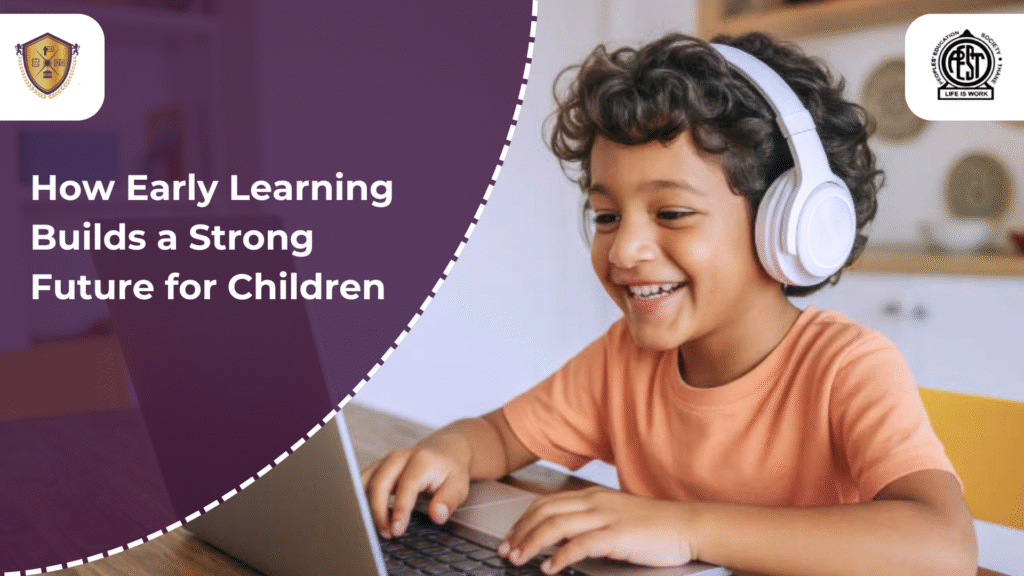
It’s funny how often we underestimate the smallest things. A child drawing with a crayon, building a tower, or asking, “What happens if I put this here?” might seem like just another day. But those tiny actions—quiet moments of trial, error and joy—are shaping the person they’ll become tomorrow.
We see it every day, the beginnings, the curiosity and the questions that lead to more questions. The truth is, learning doesn’t start with textbooks or exams. It starts with wonders.
The Power of Beginnings
Ask any parent what their child was like at age three and you’ll likely hear something along the lines of: “Always asking why.” That’s the essence of early learning—pure, untamed curiosity.
Between birth and age five, children develop faster than at any other point in life. Their brains are wiring themselves in real-time, building the framework for how they think, react, socialize and feel. These early experiences—what they see, hear, feel and even how they’re spoken to—shape the way their brain grows.
And it’s not just about gaining information. It’s about forming patterns: How do I respond to problems? What does it mean to feel safe? Can I try something new without being scared?
Those questions are answered, again and again, in the early years—often without a child even realizing it.
More Than Just A-B-Cs
At Indo Scots, we often remind ourselves: children don’t just need knowledge. They need confidence, kindness and resilience. They need to know that it’s okay to make mistakes, that effort matters more than perfection and that their voice has value.
You don’t build those lessons through rote learning. You build them by letting children explore, experiment, fall, laugh and try again.
Early learning, at its best, includes:
- Expression – Children learning to name their feelings, talk about their ideas and share their thoughts without fear of judgment.
- Imagination – Open-ended play that encourages them to ask “what if?” instead of just learning “what is.”
- Connection – Building relationships with peers and adults through trust, empathy and shared experiences.
- Movement – Active, hands-on learning where they touch, move, climb, pour and create with freedom.
What Early Learning Looks Like
It’s easy to picture early learning as structured lessons, but more often it’s quiet and subtle. A child sitting alone, turning pages of a picture book. Two kids are negotiating who goes first on the slide. A classroom filled with laughter during a storytelling session.
These are not “breaks” from learning. These are the moments when it is happening.
When a child figures something out on their own or solves a problem without an adult stepping in, they build a kind of self-belief that no amount of instruction can replicate.
And when they’re surrounded by adults who listen, respect their voice and celebrate effort as much as achievement, that’s when you see growth, not just academically, but emotionally and socially too.
The Role of the Right Environment
A well-designed early learning environment doesn’t push children—it invites them.
At Indo Scots Global School, our spaces are created with intention. Every corner is an opportunity for discovery, every activity a chance to learn in disguise. Teachers serve more as facilitators—observing quietly, asking thoughtful questions and guiding gently when needed.
We also work closely with families, knowing that home and school are both critical parts of a child’s learning story. What’s learned in the classroom is only truly powerful when it’s supported beyond it.
Long-Term Impact, Real and Lasting
Many studies have shown what we already sense as educators and parents: early learning affects everything.
Children who attend high-quality early learning programs tend to be more prepared for school, perform better academically and have stronger social skills. But the biggest difference? They carry a quiet kind of confidence—one that says, “I can figure things out. I can try again.”
And in a world that’s changing faster than ever, that confidence is gold.
So, Where Does It All Begin?
It begins at home. It begins in the way we talk to children, the patience we show and the freedom we give. It begins when we stop rushing them through childhood and start honoring their pace.
And it begins in classrooms like ours, where early learning is not just about what a child can do, but who they’re becoming.
At Indo Scots Global School, we’re proud to be part of these early chapters. Because while a child’s journey will stretch across many years and many places, the roots they grow in these first few years matter the most.